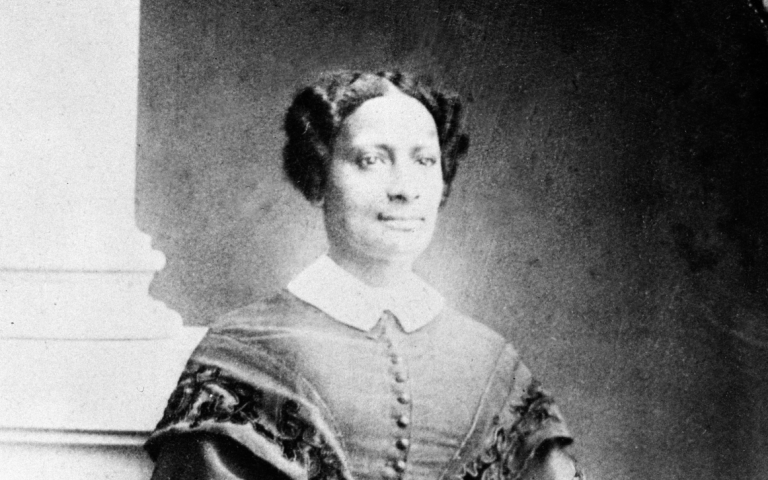UCL centre renamed in memory of transatlantic abolitionist
11 March 2020
UCL has renamed its Centre for the Study of Racism & Racialisation, after the transatlantic abolitionist and women’s rights activist Sarah Parker Remond.

More than 120 years after her death, UCL Sarah Parker Remond Centre will continue her legacy by providing a focal point for scholarship, teaching and public engagement activities that seek to address the various problems of racial inequality and hierarchy.
Sarah Parker Remond was a free-born African American radical, suffragist, anti-slavery activist and later, a doctor. She started speaking publicly against slavery in the 1850s and was the first woman to lecture publicly against slavery in the UK.
Her lectures took her around America, the UK and Europe, where she became a well-known figure and agent of change in the anti-slavery movement. Her entire family was dedicated to the abolition of slavery and their home was a meeting point for black and white abolitionists.
Professor Paul Gilroy, Founding Director of UCL Sarah Parker Remond Centre, said: “Sarah Parker Remond is relatively unknown in the UK today despite her significant role in the abolition movement. In naming the Centre after Remond we seek to protect her legacy and provide a hub for engaging critically with racism and racialisation, bringing together scholars and activists from both within academia and outside, in the UK and internationally.”
The Centre was established in 2019, as part of a process aimed at acknowledging and interrogating the colonial and imperial histories that persist within universities and the structures of UK society more broadly. It is the first space to be renamed in 2020 as recommended by UCL’s Buildings Naming and Renaming Committee.
The Centre is committed to exploring the impact of racism on the development of all varieties of academic inquiry. It will focus, in particular, on the complex legacies of race-thinking across the humanities and social sciences as well as the continuing effects of racialised inequality in the workings of government, law, the arts, culture, technology and social life.
Sarah Parker Remond biography
Sarah Parker Remond was born in Salem, Massachusetts in 1826, and was one of ten children.
Massachusetts was by this time a ‘free state’ and centre of the abolition movement. The Remond family owned a successful catering and hairdressing business and Nancy, Remond's mother, was a major influence on her life.
Remond was largely self-educated and took advantage of a house full of books and newspapers, many from the Anti-Slavery Society which members of her family were active in.
Remond moved to England in 1859 and, as a notable and effective abolitionist campaigner, where she became the first woman to lecture publicly against slavery. Eventually, she settled in London’s Holland Park where she became active in a range of radical social movements.
Remond studied languages and liberal arts at Bedford College before changing direction and enrolling at London University College from where she studied as a nurse in 1865. She relocated to Italy in 1866 and took the habilitation examination to become an obstetrician in 1868.
Remond married an Italian and practised medicine in Rome for the duration of her life.
Remond died in Florence in 1894 at the age of 79 and was buried in Rome, where, in 2014, a memorial plaque was put up in her memory.
Remond was not only a dynamic political voice against racial hierarchy and gender inequality but also a woman of science and medicine. Her life reveals an interesting history of the ways in which the pursuit of civil and political rights and citizenship by black people have been connected to the acquisition of rights and recognition by women.
Links
- Sarah Parker Remond Centre website
- Professor Paul Gilroy’s academic profile
- Dr Sirpa Salenius’s academic profile
 Close
Close

